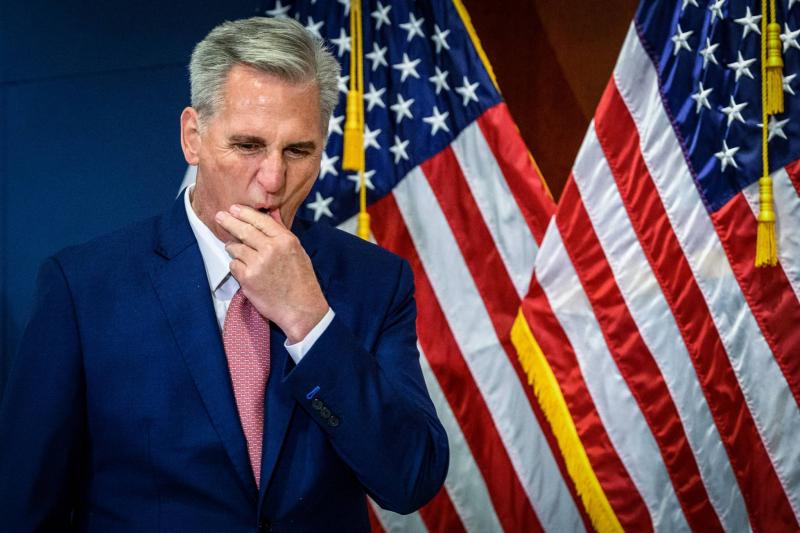The U.S. House of Representatives voted to remove its Speaker, Kevin McCarthy, from his position for the first time in U.S. history. The vote was 216 in favor of removal and 210 against. The position of Speaker of the House has been declared vacant, and McCarthy will continue to manage operations until a new Speaker is elected.
Every Congress must pass a new set of House rules; therefore, without a Speaker overseeing the approval of these rules, none will exist in practice. Without the approval of the House rules package, committees will not be able to pay their staff, and student loans for committee staff will also not be disbursed if the rules package is not adopted. This is one way that the struggle for the Speaker's position can hinder the House and the Republican majority from functioning efficiently.
Aside from fulfilling his role effectively, the Speaker also figures in the presidential line of succession, raising questions about what happens in the absence of someone in the position that ranks second after the Vice President. Ironically, McCarthy was the first to propose a change in Congressional rules that would facilitate the removal of the Speaker, aimed at encouraging hesitant members to approve his ascension to the position, which is a key demand from strong opponents within the Republican Party.
Under current rules established during Nancy Pelosi's tenure, only a member of House leadership can propose a removal motion, whereas the new proposal would allow any House member to force a vote on the Speaker's removal at any time. Some Republicans believe McCarthy’s 14 years in top leadership roles in the House place responsibility for its dysfunction on him, which is now acknowledged, and the Republican leadership faces criticism for failing to achieve greater electoral gains during the midterm elections.
Republican Congressman Matt Gaetz from the far-right faction moved to oust House Speaker McCarthy, reigniting the internal struggle within the party between traditional conservatives and supporters of former President Donald Trump. This procedural maneuver, rarely used in U.S. history, comes after Congress passed a temporary budget for the Democratic administration despite opposition from many Republican lawmakers. Gaetz is a prominent leader of the “Freedom Caucus” in the House, comprised of several far-right Republican legislators who have pushed the country to the brink of shutting down federal institutions by refusing to provide additional federal funding without agreeing to spending cuts.




